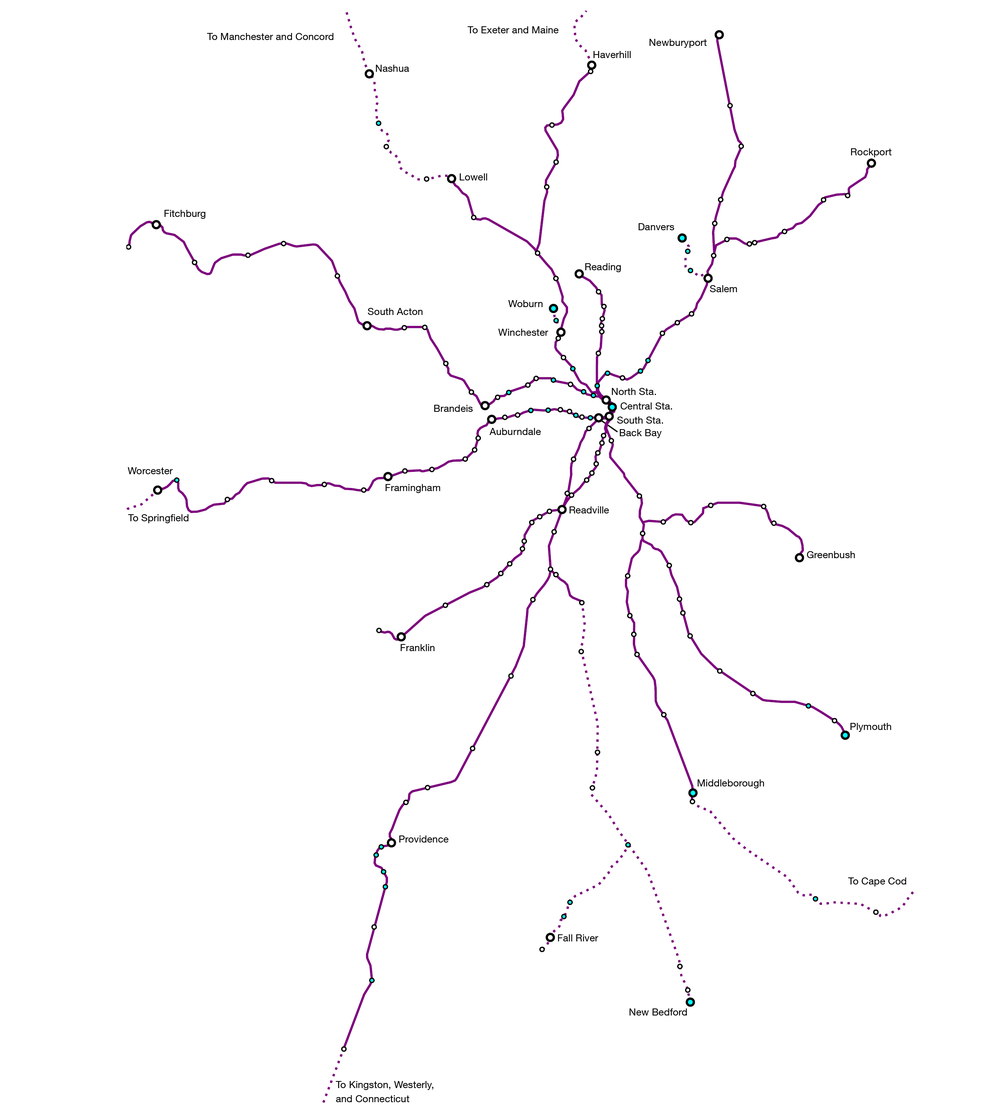Transit Matters releases its regional rail recommendations.
Namely:

Namely:
A highly functioning Regional Rail system includes five critical components:
Systemwide electrification and the purchase of high performance electric trains.
High platforms, providing universal access and speeding up boarding for everyone.
Strategic Infrastructure investments to relieve bottlenecks.
Frequent service all day: every 30 minutes in the suburbs and every 15 minutes in denser neighborhoods.
Free transfers between regional trains, subways, and buses, and fare equalization with the subway in the subway’s service area.
And one useful component that will complete cross-region mobility:
While not critical to implementing a Regional Rail system, the North-South Rail Link (NSRL) between North and South Stations, allowing service between any two stations with either a direct trip or a single, seamless transfer, would be a highly useful enhancement providing the flexibility and connectivity to which many riders and potential riders would be drawn.


